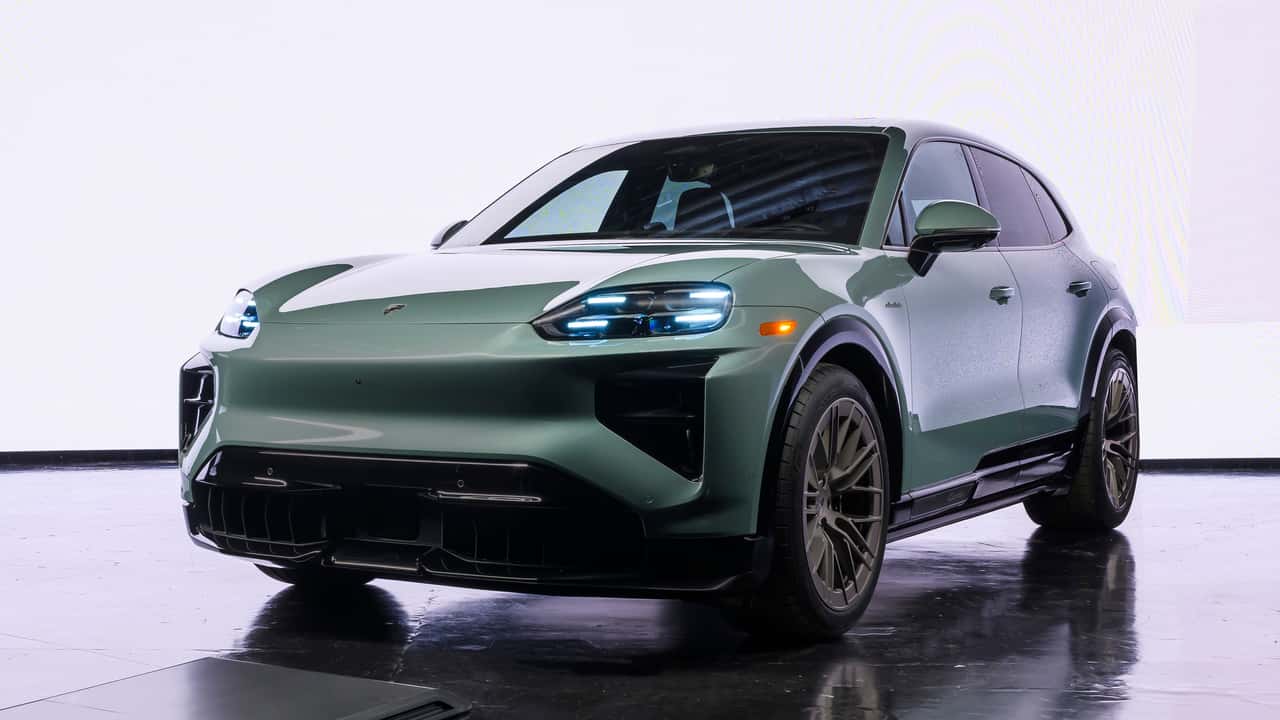BREAKING: The new Porsche Cayenne Electric has officially set records as the heaviest and most powerful production vehicle in Porsche’s storied history. This groundbreaking model unleashes an astonishing 1,139 horsepower with launch control and boasts a staggering weight of 5,831 pounds (2,645 kilograms) without a driver.
This urgent news comes just after the Cayenne Electric’s launch, marking a significant milestone for the automotive industry. The Turbo variant not only outperforms its predecessors but also surpasses the previous heaviest model, the Porsche Cayenne Turbo E-Hybrid Coupe, which weighed 5,721 lbs (2,595 kg). The weight gain of 110 lbs (50 kg) makes the Cayenne Electric Turbo the “porkiest” model to roll out from Porsche’s Zuffenhausen factory.
The Cayenne Electric Turbo’s massive 113-kWh battery alone weighs approximately 1,322 lbs (600 kg), nearly equivalent to the full weight of a classic Porsche 356 SL, which tipped the scales at just 1,410 lbs (640 kg). This stark contrast illustrates the advancements in electric vehicle technology, but also raises questions about the increasing weight of modern SUVs.
Despite its heft, the Cayenne Electric Turbo is not the heaviest electric SUV on the market. The Mercedes G-Class has been measured at an imposing 6,801 lbs (3,084 kg), while the EQS SUV is close behind at 6,792 lbs (3,081 kg). Comparatively, America’s own Cadillac Escalade IQ is a massive 9,134 lbs (4,143 kg), making the Cayenne look relatively nimble in this heavyweight category.
Porsche’s trend towards heavier vehicles isn’t slowing down. A new three-row SUV is in development, initially set to launch as an electric model, but it will debut with combustion engines. Experts predict that once the EV version arrives, it will likely exceed the current weight records set by the Cayenne Electric.
Historically, Porsche’s vehicles have evolved in weight since the original 2002 Cayenne, which was a robust off-roader weighing 5,191 lbs (2,355 kg) in Turbo S trim. As Porsche continues to innovate, the industry watches closely as this weight trend raises important questions about performance, efficiency, and consumer preferences.
As the automotive landscape shifts towards electrification, the Cayenne Electric stands as a testament to Porsche’s commitment to power and performance, even as it challenges conventional notions of vehicle weight. What’s next for Porsche? Stay tuned as more details emerge about future electric models and their potential impact on the market.
This is a developing story, and further updates will follow as the automotive world reacts to this groundbreaking release.







